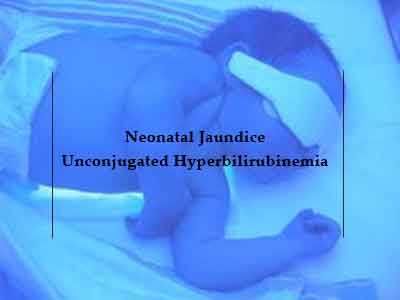- Home
- Editorial
- News
- Practice Guidelines
- Anesthesiology Guidelines
- Cancer Guidelines
- Cardiac Sciences Guidelines
- Critical Care Guidelines
- Dentistry Guidelines
- Dermatology Guidelines
- Diabetes and Endo Guidelines
- Diagnostics Guidelines
- ENT Guidelines
- Featured Practice Guidelines
- Gastroenterology Guidelines
- Geriatrics Guidelines
- Medicine Guidelines
- Nephrology Guidelines
- Neurosciences Guidelines
- Obs and Gynae Guidelines
- Ophthalmology Guidelines
- Orthopaedics Guidelines
- Paediatrics Guidelines
- Psychiatry Guidelines
- Pulmonology Guidelines
- Radiology Guidelines
- Surgery Guidelines
- Urology Guidelines
Filtered Sunlight Phototherapy inexpensive solution for jaundice in Neonates

Filtered-sunlight phototherapy (FSPT) is safe and no less efficacious than intensive electric phototherapy (IEPT) for treatment of moderate-to-severe neonatal hyperbilirubinemia (jaundice) in near-term and term infants reports a study published in the journal The Lancet Global Health.
The study suggests that newborn jaundice can be treated with filtered sunlight, providing a safe, inexpensive, low-tech solution to a health problem that now causes permanent brain damage or death in more than 150,000 babies in developing countries each year.
Tina M Slusher and associates conducted a study to find out whether filtered-sunlight phototherapy was efficacious and safe for the treatment of moderate-to-severe neonatal hyperbilirubinemia.
The researchers did a prospective, randomized controlled non-inferiority trial in which they randomly assigned (1:1) FSPT or intensive electric phototherapy (IEPT) to near-term or term infants aged 14 days or younger who were of 35 weeks or more gestational age and with total serum bilirubin concentrations at or above the recommended age-dependent treatment levels for high-risk neonates. FSPT was delivered in a transparent polycarbonate room lined with commercial tinting films that transmitted effective phototherapeutic light, blocked ultraviolet light, and decreased infrared radiation.
Read Also: A rare cause of neonatal persistent jaundice
The primary outcome was efficacy, which was based on assessable treatment days only (ie, those on which at least 4 h of phototherapy was delivered) and defined as a rate of increase in total serum bilirubin concentrations of less than 3·4 μmol/L/h in infants aged 72 h or younger, or a decrease in total serum bilirubin concentrations in those older than 72 h.
Key study findings:
- The neonates in the FSPT group received 215 days of phototherapy, 82 (38%) of which were not assessable.
- In addition, neonates in the IEPT group received 219 treatment days of phototherapy, 67 (31%) of which were not assessable.
- It was noted that median irradiance was 37.3 μW/cm2/nm in the FSPT group and 50.4 μW/cm2/nm in the IEPT group.
- FSPT was efficacious on 116 (87.2%) of 133 treatment days.
- IEPT was efficacious on 135 (88.8%) of 152 treatment days.
- FSPT was not inferior to IEPT because the CI did not extend below -10%.
- For all neonates, treatment was safe.
The study concluded that the efficacy of FSPT was not inferior to IEPT in the treatment of moderate-to-severe neonatal hyperbilirubinemia.
“Future studies are needed to establish when FSPT alone is adequate to treat moderate-to-severe neonatal hyperbilirubinemia and when FSPT should be combined with battery-powered IEPT units to provide adequate treatment for infants with moderate-to-severe neonatal hyperbilirubinemia in areas with inadequate electrical power or phototherapy equipment. Use of FSPT whenever possible could substantially extend the life of batteries and expensive IEPT units, which can be reserved for urgent use”, write the authors.
For reference log on to https://doi.org/10.1016/S2214-109X(18)30373-5

Disclaimer: This site is primarily intended for healthcare professionals. Any content/information on this website does not replace the advice of medical and/or health professionals and should not be construed as medical/diagnostic advice/endorsement or prescription. Use of this site is subject to our terms of use, privacy policy, advertisement policy. © 2020 Minerva Medical Treatment Pvt Ltd